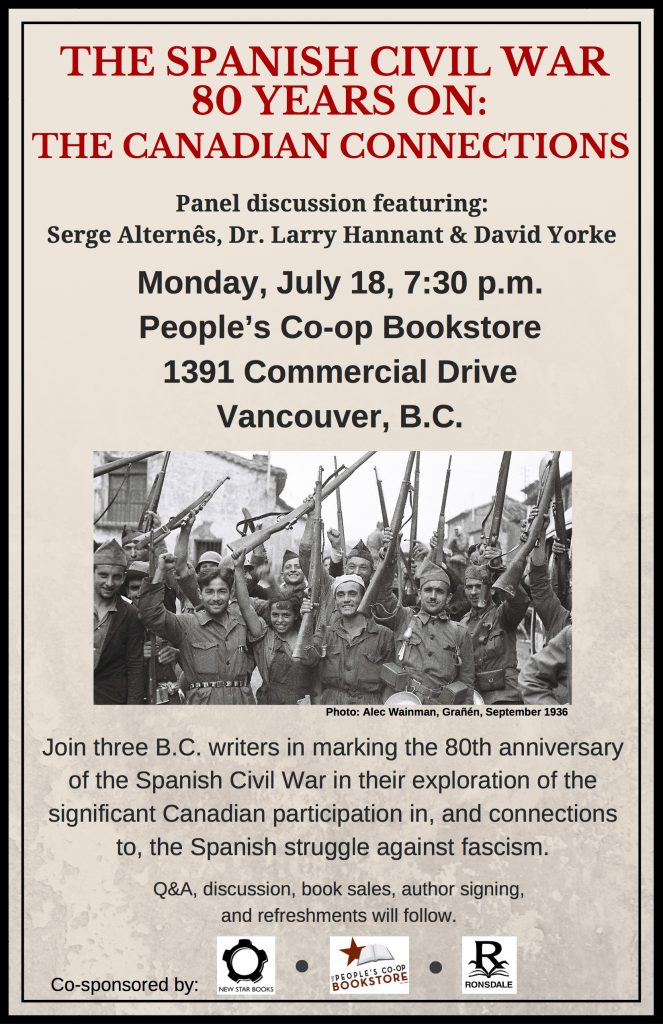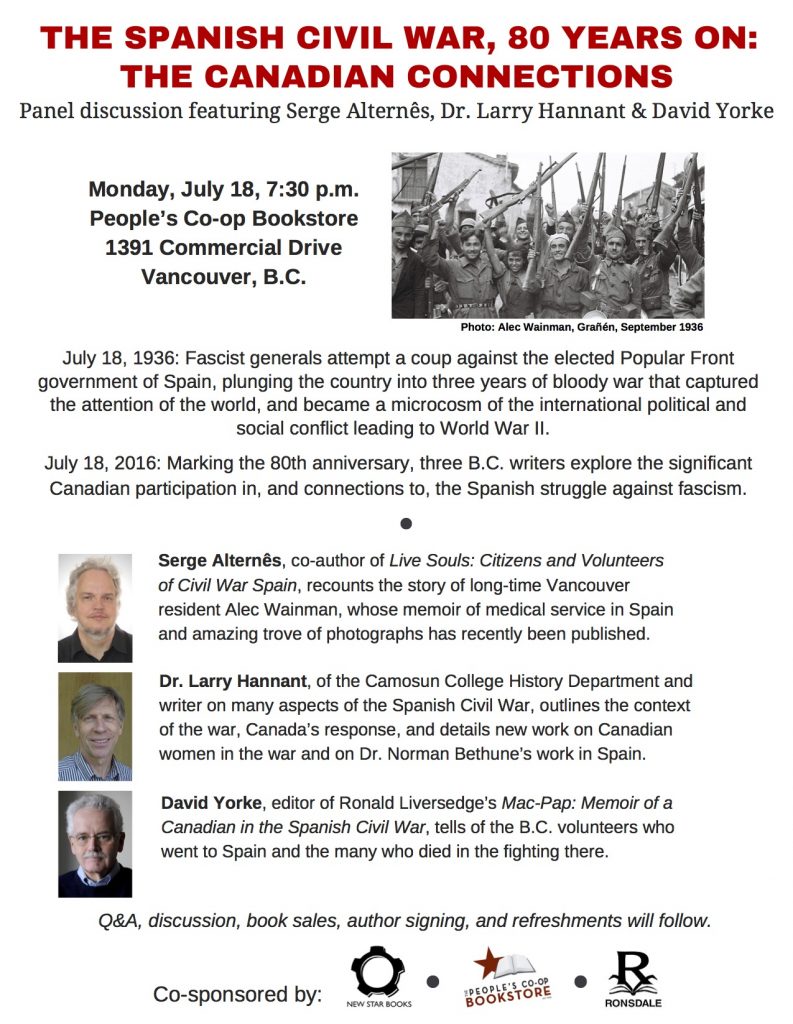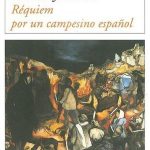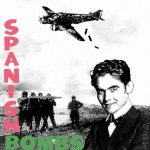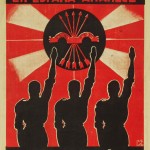
Welcome to SPAN430/530, “Novelas de la guerra civil española.” I’m very much looking forward to the class, and we’re reading some great books (including two Nobel prize-winners!).
Like every summer course, this will be a fairly intense experience. We will spend a lot of time together in a short time. I thought therefore it would be good to introduce the course ahead of time so you might be able to prepare a bit before we start.
I have put up a provisional syllabus. A couple of the novels are fairly long–the Hemingway in particular, but it’s a great book (some say, his best). If you were going to read ahead, then you might want to start on this, or perhaps on the Cela. On the other hand, there are some texts that are quite short: the Sender and Méndez, for instance.
You may want to find other ways to get hold of some of the books: the UBC bookstore is not always your cheapest option.
I have also put up further details and description, including information about your assignments. Note that one feature of the assignments is that (if you are an undergraduate student, i.e. in SPAN430 rather than SPAN530) you will be able to opt out of reading one of the books if you wish. So the reading load is not as onerous as it may seem at first glance. I certainly do not want this to be overwhelming.
I’d further point you to the fact that for our very first session we have a guest: Serge Alternês, who has recently published Live Souls, a book of photographs taken by his father, who was a volunteer ambulance driver during the war. I have written a brief review of this book. You don’t have to buy it, but it will be a great experience to listen to Serge present on it.
One more thing: you’ll notice that several of the books (Orwell, Hemingway, and Malraux) we are reading in English. As a result, the class discussion will also be roughly half in English (when we are dealing with these texts) and half in Spanish.
Finally, I should say that it would be ideal if we had a couple more students in the course, so if you have any friends looking for some summer credits, do encourage them to sign up. It should be fun. If they have any questions, they can get in touch with me.
Looking forward to meeting you all in a few weeks!

